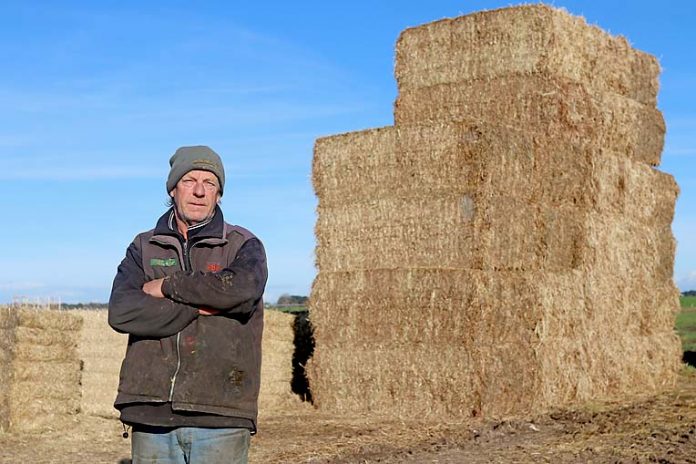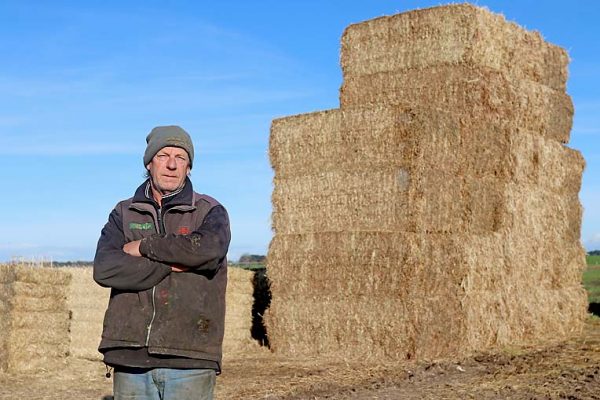

SOUTH East farmers are “barely breaking even” on stock feed as a national hay shortage takes its toll on the region’s agriculture sector.
Prices have soared in recent weeks with some stock producers facing increases in excess of 30pc, with the impacts of the delayed autumn rain break also being felt.
It follows a recent clearing sale in Kongorong where hay fetched top dollar after a Glenburnie farmer purchased 78 bales at $90, a figure one local agent claims was double its value compared with strong farming years.
Limestone Coast dairy farmer Barry Bruce said while some stock feed suppliers continued to service the local sector, he claimed others had “chased the money” in other parts of Australia, with New South Wales and Queensland among the areas desperate for feed.
“Our biggest industry costs would be hay, power and grain prices which have continued to rise over the years,” he said.
“A large concern is supply because if we run out and can not feed our cows we will have to cull or de-stock as it is just not sustainable.
“Some of the prices people are paying are just ridiculous.”
Mr Bruce said the price increase is having huge impact on his business and income.
“The dairy industry in particular has been ordinary for a while now so there is not a lot of room to move, you just have to take less milk,” he said.
“The dilemma is cows which do not get fed as well do not produce as much milk.
“I have been in it for over 40 years and it just seems to keep getting harder.”
In the past Mr Bruce said he has had suppliers asking him to purchase premium hay at pasture price due to not being able to get rid of it.
“Two years ago we were paying around $160 a tonne for Lucerne, Vetch or Clover hay delivered because suppliers could not get rid of it,” he said.
“Normally we would pay around $250 to $300 a tonne delivered for Vetch but this is now reaching $400 delivered.
“Pasture hay is reaching up to $300 a tonne and straw is reaching up to $200 per tonne which is up by around 30pc and is just too much.”
Mr Bruce said the late autumn break added to the pressure with feed now struggling to grow.
“It was two months too late for the rain and it has had a huge impact on feed growth,” he said.
“We are nearly at the year’s shortest day now so you usually do not grow much grass until the other side of June, depending on the weather.”
Mr Bruce said the increased hay prices were “not viable”.
“We would be feeding around 600 cows so we are looking at around 900 to 1000 tonne of feed a year on average,” he said.
“It is a bit of a battle but in general the past six or seven years has been hard for the dairy industry.
“I wish we could stockpile and have a year’s supply ready and waiting but it is easier said then done and it will not stay like this forever.”







